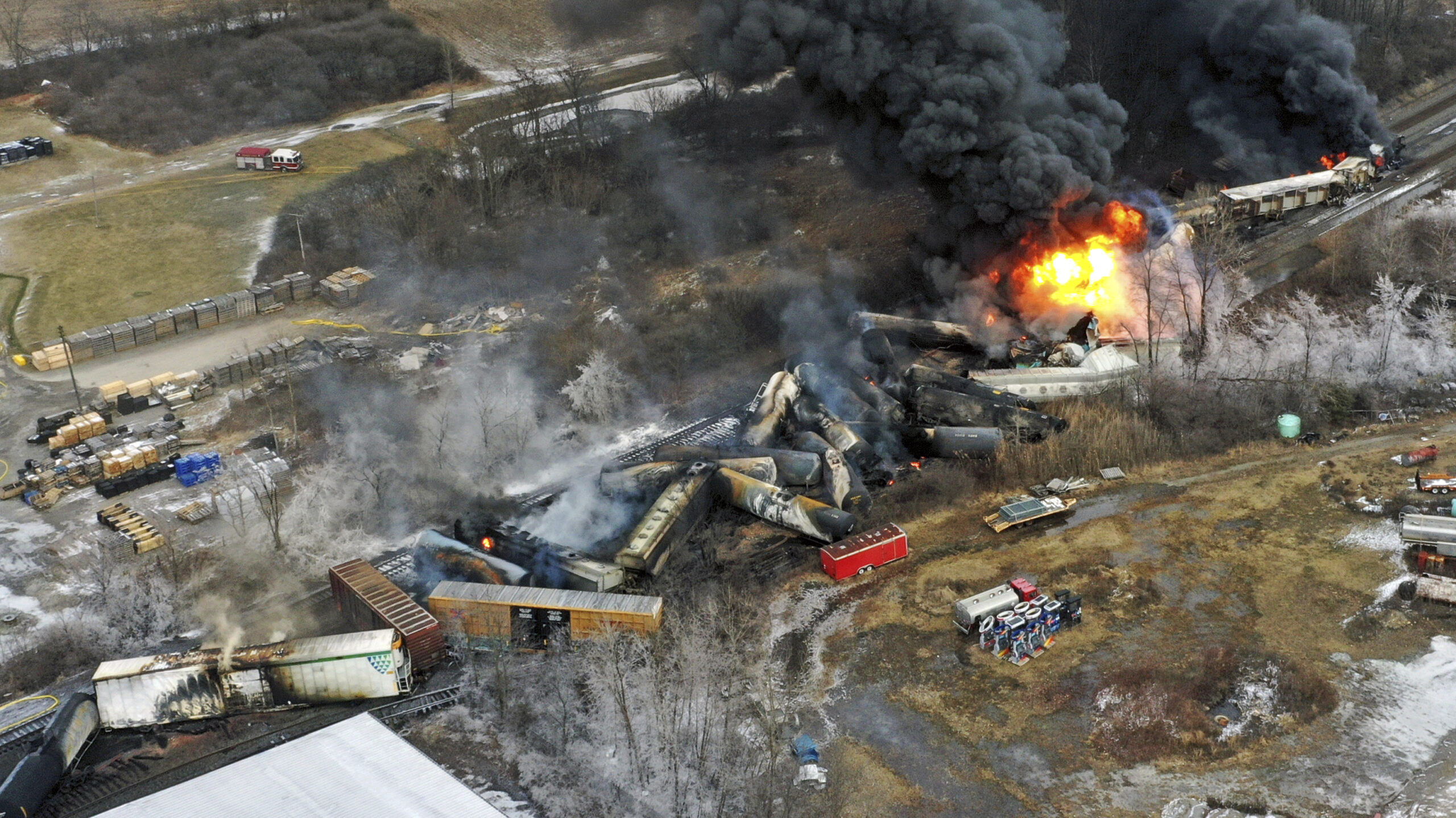Already a subscriber? Make sure to log into your account before viewing this content. You can access your account by hitting the “login” button on the top right corner. Still unable to see the content after signing in? Make sure your card on file is up-to-date.
According to a former Environmental Protection Agency (EPA) contractor, the EPA delayed deploying a specialized aircraft designed to monitor air quality following the derailment of a train carrying hazardous materials in East Palestine, Ohio.
Robert Kroutil, a former contractor who played a role in developing the Airborne Spectral Photometric Environmental Collection Technology (ASPECT) for the EPA, claimed in an interview with NewsNation that the EPA deviated from its usual rapid response protocol. According to Kroutil, the agency typically deploys the ASPECT plane within hours of such incidents to detect unusual chemical or radiological signals in the air. However, in the case of the East Palestine derailment, there was a significant delay.

In the interview, he said, “We should be there at least two weeks to monitor the situation [and] that did not happen. We only were deployed for two missions on February 7. And by that time the [chemical] plumes were out, the fire was out. The aircraft actually only collected data, eight minutes worth of data over the targets.”
Kroutil expressed frustration over the missed opportunity to gather crucial environmental data promptly. The frustration led Kroutil to complete an affidavit critiquing the EPA’s handling of the situation

The affidavit suggested that timely and proper use of the ASPECT aircraft could have provided vital information and potentially prevented or mitigated the release of hazardous substances through a controlled burn. His claims are in line with concerns raised by National Transportation Safety Board Chair Jennifer Homendy in March, who pointed out that contractors from Norfolk Southern, the operating company of the derailed train, lacked the necessary scientific expertise to conduct the controlled burn.
Some have claimed that Norfolk Southern pushed for a controlled burn so they could quickly reopen one of the train tracks so they could continue operating. The track in East Palestine is a critical rail used by the company.






